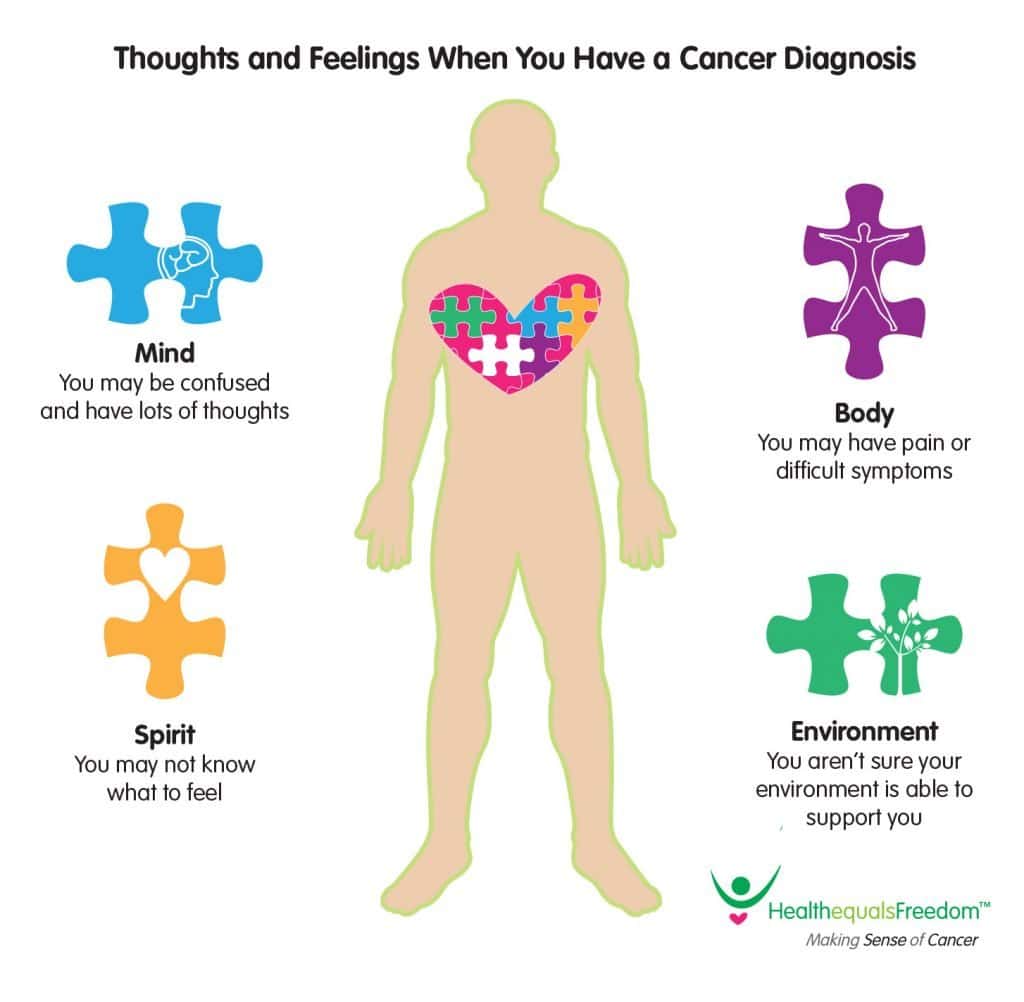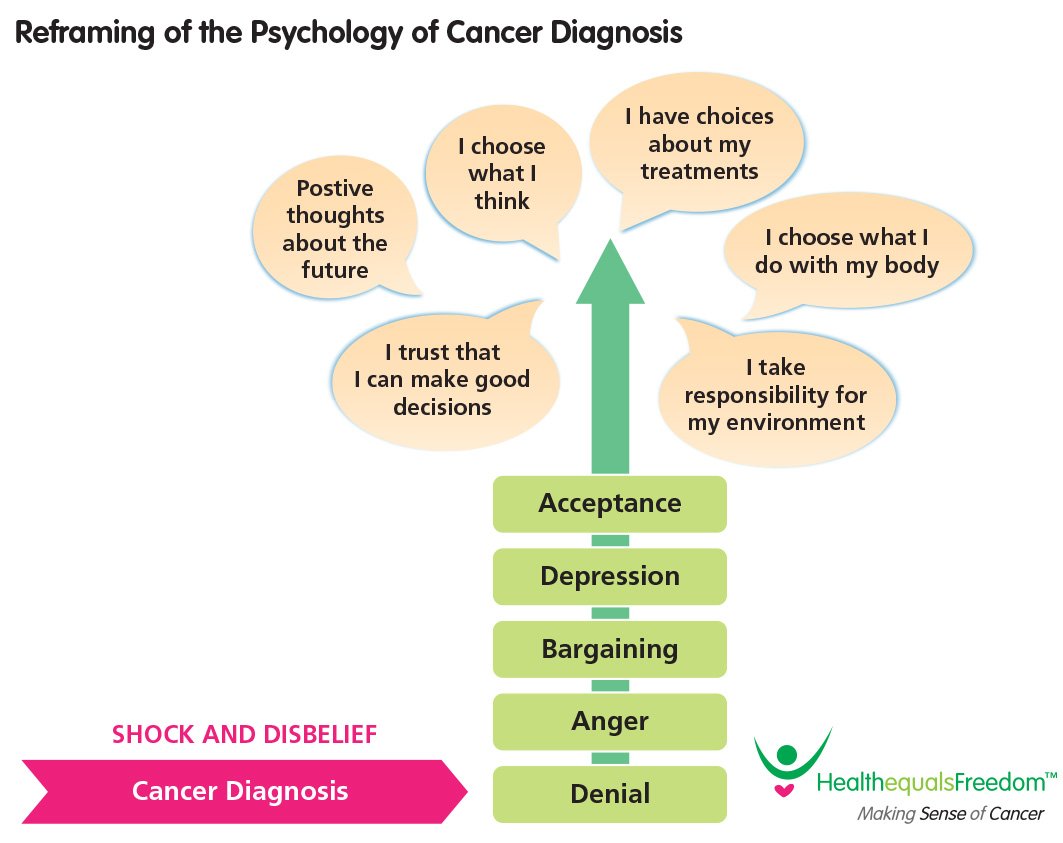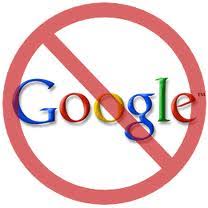
About You – Are you newly diagnosed and confused?
Now what do you do?
Cancer treatment – what a can of worms!
Has this happened to you yet – when you share your diagnosis with others, everyone knows someone with cancer or who had cancer, and are suddenly experts? They know just how to cure you as there is this miracle cure that they read about on the internet.
It can feel like they don’t trust you to know what is best for you, or that you are an idiot.
Others can force their opinions on you, give you weird and wonderful opinions. Lots of advice on what you ‘should do’ to fix this and you didn’t even ask their advice!
Too much confusing information
Regarding cancer treatment – often your doctors give you a pile of complex medical information and jargon (e.g. resection, chemotherapy, radiotherapy etc). ‘They say’ consumer medical information (CMI) is supposed to make things easier to understand – yikes it may not feel like that!
You don’t know ‘what is what’ – you are totally confused, you feel pressured to learn and understand it all, but you certainly don’t feel like doing it.

Do you feel embarrassed you that don’t know what all the words mean? Your friends and family have known people who have died from cancer. Are you going to die? Cancer is scary when anyone talks about it.
You are not alone, in fact, in 2021 it is estimated that in Australia each year there are 162,000 new cancer diagnoses or 440 people [AIHW, 2021], who receive this news, just like you every single day!
That is a lot of confused people. You may be lucky and have friends or family members who are medical savvy. Maybe you don’t have family or friends that are feeling calm and confident and they also don’t understand what is coming next.
If you just received your diagnosis you are most likely scared, confused, overwhelmed, and at times you may feel helpless.
You may also feel motivated, to do whatever you can, to change what is happening with your health.
There is some good news amongst this doom and gloom. Today, almost 7 in 10 Australians will survive for at least 5 years after a cancer diagnosis and in some cancers the survival is as high as 90% and it is steadily increasing with improvements in care and treatments. Or in other words 9 people out of 10 live on, which is good news in the cancer diagnosis landscape. This could be the case for you too!
I have drawn a picture of the emotions that you may be feeling or thoughts that might be swirling around in your head.

You may stay in denial when diagnosed, or you may feel motivated to improve your health, which is a positive reframe!
Reframe YOUR Cancer Journey!

Avoid Dr Google
Are you looking at all of the options that you can take to help yourself?
Helping yourself usually starts with a ‘Google Search’.
The responsibility for your health lies with YOU, not your doctor and certainly, not Google, which is actually good news for a change!
Most cancer treatments presented by your doctors are tailored to your own cancer type, stage and grade, and other personal factors such as age. Your personal factors mean it is very hard to find correct information online, as online is not tailored to you.
Also, the internet is also full of ill-informed opinions, you may have started to noticed this already. Nick-named ‘Dr Google’ can be full of propaganda, sales spiels sponsored by drug companies, or written by people with ‘snake oil’ treatments and miracle cures to sell.
Patients like you, who are newly diagnosed with cancer, are scared and vulnerable. Claims of miraculous cures for cancers are all over the internet. It can be quite a dishonest place.
In addition, other patient’s post their opinions online, which speak of their own experiences only. Their experiences may not be relevant to you. Also, not all opinions are well informed by highly trained healthcare professionals.
One of my friends who has a medical background and is currently undergoing experimental chemo, told me that the more she got into her treatment the more depressing she found the internet and her research.

Opinions on Google
Other’s experiences with cancer may not be relevant to you.
You can choose what treatment paths you take that suit you best. What caused your cancer is not as important as what you do about it.
Be careful, as much of what is on the internet about cancer may be not relevant to you at all. Not all opinions are well informed by highly trained professionals.

Understanding your decision points is important, this may take time and you may need assistance to walk you through concepts in your own unique way. You may not like reading medical information and choosing the treatment/s that suit you best may be complex.
Better Outcomes if you are in Rural Australia
Unfortunately if you live in Rural or regional areas of Australia, data suggests that you don’t do as well (Rural Doctors Association quoted AIHW data 2018 and ABC Four Corners Health Hazard). We want to change this statistic and give you better outcomes.
With an understanding of your medical information you can make better decisions and do well
You may not realise but the historical medical approach is mainly focussed on doctor-centred medicine, where the power of decision making only resides with your doctor.
Research by Stewart et al., 2014 shows that a patient-centred approach which, empowers patients like you, and gives much better health outcomes, in the short and long-term, which is starting to be adopted and there are champions out there like us who want to see more of this for patient’s benefit..
To make good decisions you need to understand the complex medical information that relates to you. As a result, in your own time, you will feel more comfortable and confident with your decisions.
References
AIHW, Cancer in Australia, 2021.
AIHW, Australia’s Health: Rural Health Statistics, 2018.
ABC TV Four Corners – Health Hazard, screened Jan 2020
Emotions and Cancer, Cancer Council of WA, Australia, 2016.
McFarland et al., 2016. Clin. Adv. Haem and Onc. 14(12): 999-1009.
